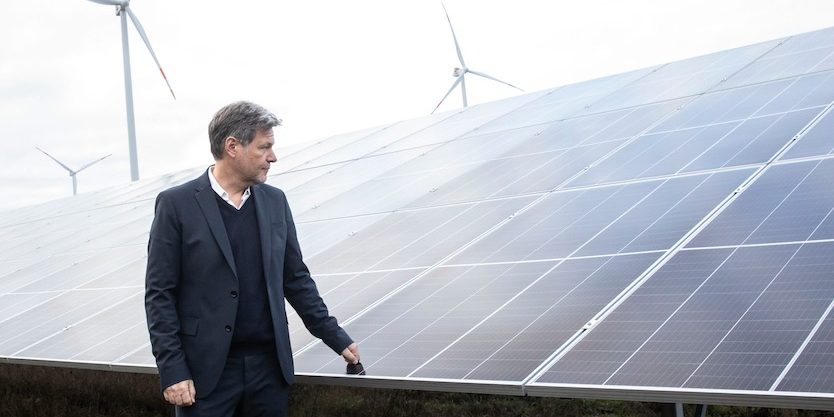From pv magazine Germany
German Chancellor Olaf Scholz (Social Democratic Party), Minister of Economics Robert Habeck (Greens), and Finance Minister Christian Lindner (Free Democratic Party) have announced that cuts to solar spending could solve a €60 billion budget crisis that left politicians scrambling in November.
The German Federal Constitutional Court (Bundesverfassungsgericht) has nullified the Bundestag's unconstitutional supplementary 2021 budget, which attempted to shuffle €60 billion of pandemic-era funding into the climate protection portfolio. Germany has strict debt brake rules, meaning the public deficit cannot exceed 0.35% of gross domestic product.
The faction leaders have issued a joint statement stating that they are satisfied with the compromise that would make up for the shortfall. Savings could be achieved through reducing spending in transport, environment and labor ministries, they said. Most notable, however, are cuts to renewable industries.
There will be an earlier phase-out of the environmental premium for electric cars and slashed solar subsidies.
All national climate and industrial transformation funds (KTF) projects will continue, such as establishing a hydrogen network and decarbonizing industry and the citizens' programs. Surcharges for the renewable energy sources legislation (EEG) will continue to be scrapped, and support for homeowners replacing heating systems will also be maintained, they said.
BSW-Solar has criticized the announcement, saying that the construction of new PV factories in Germany would be affected. According to government statements, however, no cuts are planned for solar subsidies via the EEG legislation.
BSW-Solar said the savings would affect the expression of interest procedures for lighthouse projects designed to ramp up industrial PV production capacities, estimated to cost around €1.3 billion of federal funding.
BSW-Solar Managing Director Carsten Körnig it would be a major setback for Europe's solar industry's renaissance if this money is affected. He also said that it was important that the ‘Solar Package I' and its measures – aimed at reducing bureaucracy – should be implemented at the beginning of next year unhindered. But, if any subsidy program cuts could impact the planned expansion of solar factories as part of the package, they should be announced soon, said Körnig.
In November, the association presented a proposal for the introduction of resilience bonuses and auctions in “Solar Package 1”.
The final decision on whether resilience bonuses and auctions will be included is planned for the end of this week. The “Solar Package 1” will be on the Bundestag's agenda. According to the current status, the discussion and final vote on the EEG amendment is scheduled to begin at 1.40 pm on the last sitting day of the year. But it's possible that just a small part of the measures will be decided.
This content is protected by copyright and may not be reused. If you want to cooperate with us and would like to reuse some of our content, please contact: editors@pv-magazine.com.




2 comments
By submitting this form you agree to pv magazine using your data for the purposes of publishing your comment.
Your personal data will only be disclosed or otherwise transmitted to third parties for the purposes of spam filtering or if this is necessary for technical maintenance of the website. Any other transfer to third parties will not take place unless this is justified on the basis of applicable data protection regulations or if pv magazine is legally obliged to do so.
You may revoke this consent at any time with effect for the future, in which case your personal data will be deleted immediately. Otherwise, your data will be deleted if pv magazine has processed your request or the purpose of data storage is fulfilled.
Further information on data privacy can be found in our Data Protection Policy.